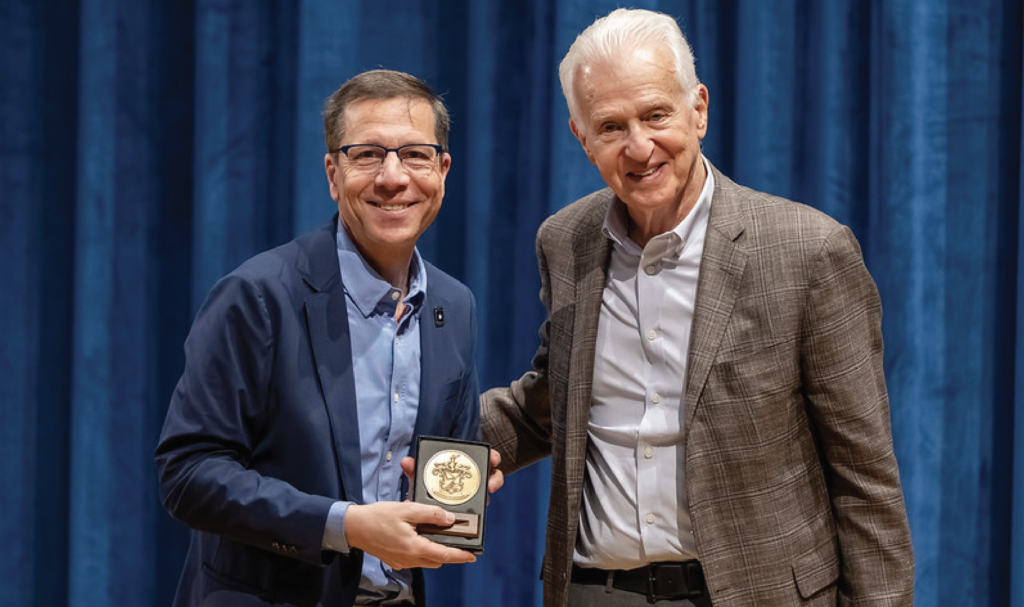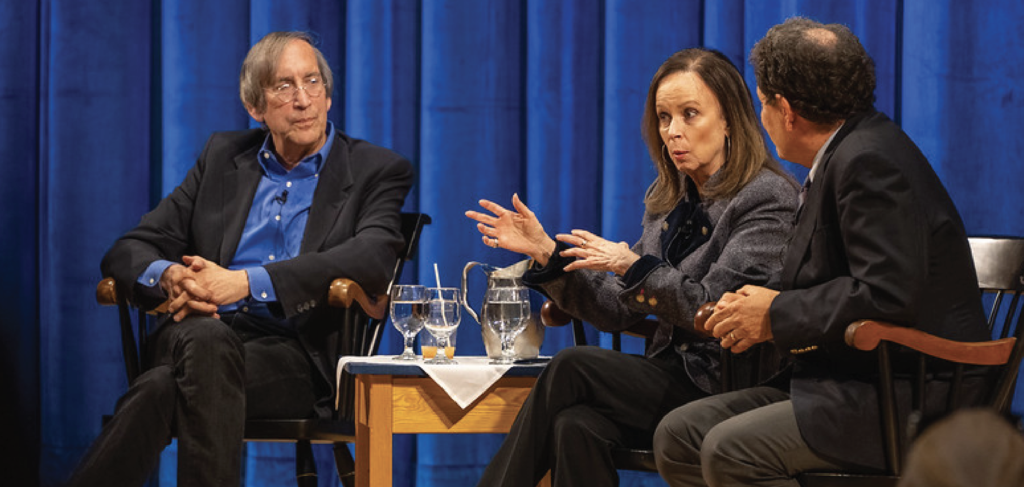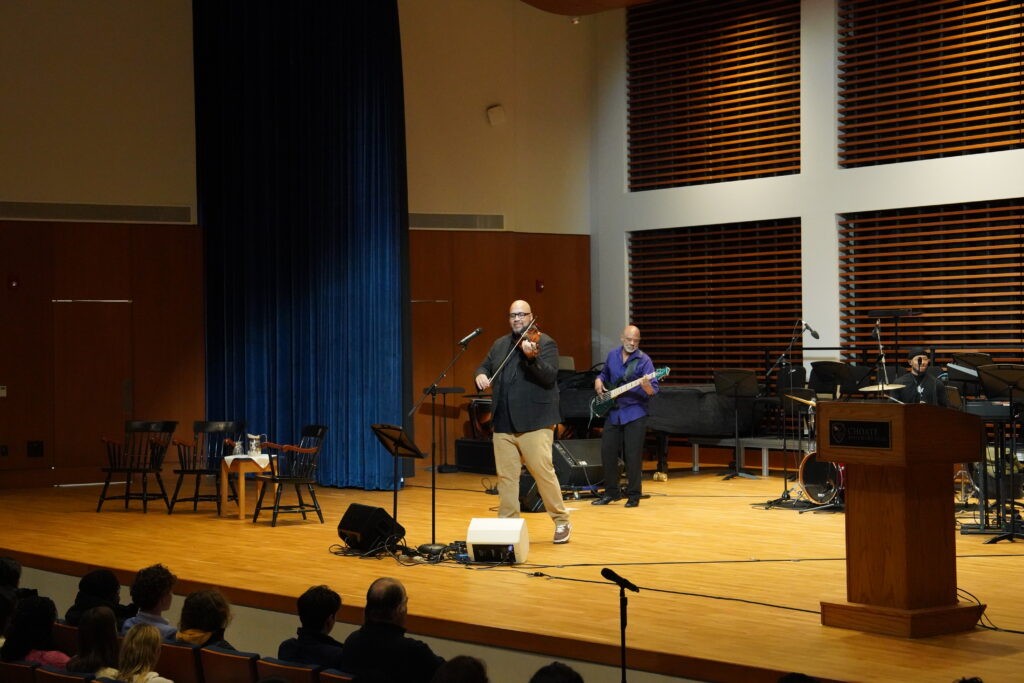
“Maestro J” opens Diversity Day with musical performance.
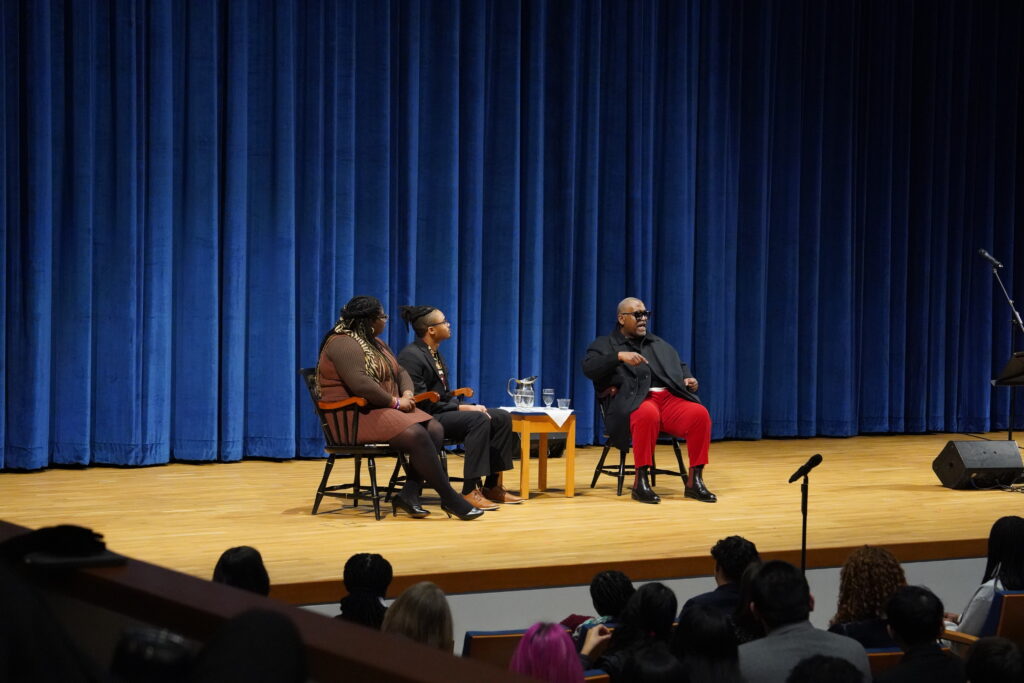
Dr. Todd Boyd participates in student-facilitated Q&A session.
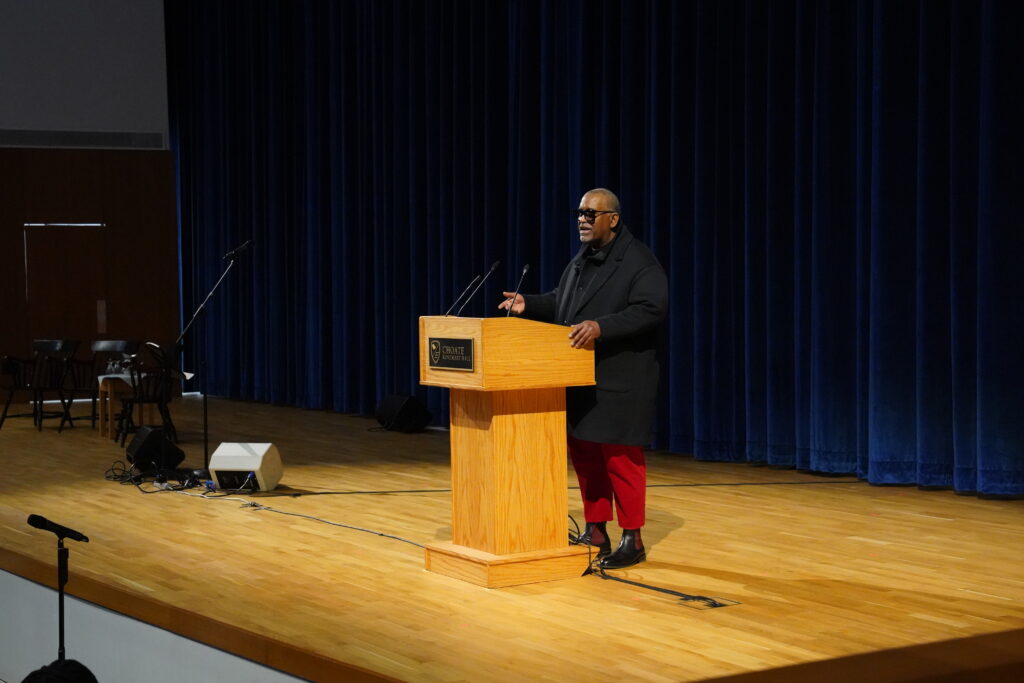
Dr. Todd Boyd addresses the Choate community.
By Anya Shah ’25
Choate’s 33rd annual Diversity Day began with a pop concert in Colony Hall, followed by a keynote speech on hip-hop culture by the “Notorious Ph.D.,” Dr. Todd Boyd. In the afternoon, community members participated in activities and workshops that matched this year’s celebratory theme selected by the Choate Diversity Student Association (CDSA): “For the Culture.”
The day’s festivities was kickstarted by jazz violinist and Diversity and Inclusion Coordinator at the Kentucky Country Day School Mr. James “Maestro J” Racine’s performance. Mr. Racine and his fellow musicians took the audience through culturally-defining Generation Z pop songs, such as “Party in the USA” by Miley Cyrus and “Call Me Maybe” by Carly Rae Jepsen.
Then, following an introduction by Dean of Equity and Inclusion Dr. Rachel Myers and Choate Diversity Student Alliance (CDSA) President Tristin Hurst ’24, the Professor of Cinema and Media Studies at the University of Southern California School of Cinematic Arts, Dr. Boyd, took the stage for his keynote speech.
Dr. Boyd’s extensive knowledge of hip-hop culture and its manifestation in American society made him the perfect person, in Dr. Myers’s eyes, to address the community once the theme was set. “I don’t know a better scholar of popular culture,” she said.
Dr. Boyd started off his speech with remarks on the memory of Dr. Martin Luther King Jr., saying that people often twist and misinterpret his words to support their own agenda. “Don’t reduce him to an easily identifiable series of soundbites … appreciate him in his full magnitude,” Dr. Boyd said.
He also spoke on the wide-reaching influence of hip-hop and demonstrated how people use terminology from hip-hop culture without realizing it: “When something can affect the way we use language, and we don’t even think about it anymore, that’s influence.” He argued that there is a fine line between appropriation and appreciation, but one can still experience the culture with respect.
Dr. Boyd spent the remainder of his speech explaining the origins of hip-hop and how the genre has woven its way into American mainstream culture and vernacular. He spoke about former President Barack Obama’s close association with hip-hop culture. “By the 2000s, hip-hop had become so pervasive, in so many ways, it would go on to elect a president,” Dr. Boyd said.
After the keynote speech, CDSA member Athena Robinson ’24 and Hurst led a Q&A session, in which Dr. Boyd shared anecdotes about his personal relationship with hip-hop. He discussed topics ranging from his experience as a college professor to cultural appropriation and representation; this discussion was continued in his afternoon workshop.
Community members were given the choice of 1o different afternoon workshops to partake in. Activities ranged from learning dances, watching documentaries, playing games, engaging in discussions, and more.
Four of the workshops were led by student clubs. Hillel hosted a workshop on cultural intersectionality in the Jewish Diaspora; Chinese Club, Choate Korea Friendship Association, and Choate South Asian Association shared traditional Asian games; and the Middle Eastern and North African Club hosted a cooking event.
In the “Student-Led Music and Dance ‘for the Culture’” workshop, student club leaders from Hispanic Latiné Forum (HLF), Africanah, and Japanese Club taught community members traditional dances from their respective cultures. “The environment was very happy, and there was a lot of energy. And there was no judgment about people who could dance or not. Everyone was just having fun,” Japanese Club Secretary Leanna Robie ’25 said.
Dance Company President and choreographer Marissa Jacobs ’24 attended “Dance ‘for the Culture,” a workshop run by STUDIO860, a hip-hop company based in Hartford, Connecticut. After the visiting dancers showcased their specialties and skills, they invited students to the Colony Hall main stage to learn some dances. Then, in a Q&A style discussion, students asked the dancers questions about their experience with cultural dance and music. Jacobs enjoyed how the workshop brought together people from different backgrounds and corners of campus and was surprised by the talent of her peers. “There was a kid who literally did a backflip on stage, and I would have never known he was a dancer,” Jacobs said.
Natalie Egan, a Class of 1996 Choate graduate, was invited to hold a workshop focused on understanding and discussing one’s identity while simultaneously connecting with others. She spoke of her own experiences as a transgender woman and business founder.
Egan then displayed the results to an interesting experiment. Using technology developed by her company, Translator, Inc., people anonymously shared three words that were stereotypes or labels and three words they felt accurately described them. Going over the responses, Egan showed the audience how similar they were, emphasizing the importance of recognizing both one’s own experience and the experience of those around them. “All of these words up here are valid, and they’re important,” Egan said.
With the range of learning opportunities offered, this year’s Diversity Day was well-received by community members. “I saw a lot of joy and engagement in the workshops, opening musical performance, and keynote with Dr. Boyd,” Dr. Myers said.

